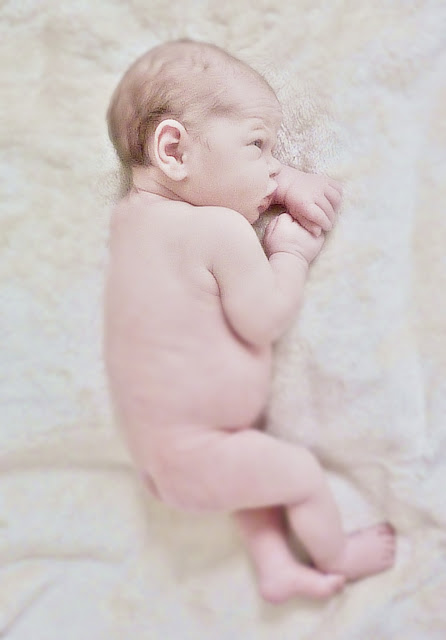Breast or bottle? That's the question all pregnant women ask themselves in the run up to birth and there are plenty of people on both sides only too keen to win you over.
While 68 per cent of British mothers start breastfeeding their babies, the number tails off dramatically after the first few weeks. Around 12 per cent have stopped by the time they leave hospital after giving birth, while a further 20 per cent give up within a fortnight. A tiny minority of babies are given only breast milk after the first two months.
Although breast milk is undoubtedly the best possible nutrition for your new baby, there are advantages and disadvantages on both sides of this age-old dispute.
Breastfeeding: pros and cons
Pros:
New evidence shows that breast-fed babies are 80 per cent less likely to be admitted to hospital for intestinal infections, and are less likely to suffer from ear and respiratory infections, diabetes and allergies.
Breast milk is free, hygienic and provides everything babies need for a healthy, nutritious and balanced diet.
A mother's milk will initially contain colostrum, which gives a baby the perfect amount of protein, minerals and antibodies until their immune system is built up.
It avoids the need for constant sterilisation of bottles and mixing of formula milk.
It prevents over-feeding.
A mother's milk contains antibodies that fight the germs baby encounters, making him less liable to health problems such as ear, breathing or urinary infections and gastro-enteritis.
It automatically adjusts temperature, so that it is always right for the baby.
The chemicals breastfeeding releases into the mother's body encourage the uterus to contract and return to its original position sooner than in non-breastfeeding mothers. Mothers who breastfeed reduce their risk of pre-menopausal breast cancer and osteoporosis. Breastfeeding can help women lose weight gained during pregnancy.
Cons:
You're on call twenty four hours a day and, unless you manage to master the legendarily tricky art of expressing, you're the only one who can satisfy your baby! a huge responsibility.
Many people still believe that there is something unseemly or even downright disgusting about breastfeeding in public.
Recent reports suggest that breast-fed babies might be receiving 42 times the safe daily limit of dioxins (chemicals that can affect the physical and mental development of children).
Bottle-feeding: pros and cons
Pros:
Getting a baby started on a bottle is easier than a breast because you can concentrate on them rather than having to concentrate on both of you.
Breastfeeding is frequently painful and uncomfortable. Bottle feeding is not.
Bottle feeding gives you more freedom, which can be beneficial if you are feeling post-natally depressed and fearful of the way that a baby is going to change your life.
Almost anybody can bottle feed your baby, and it means you can involve partners and family in the process.
Cons:
Formula milk doesn't have all the same health benefits as breast milk.
Formula can be quite costly.
Sterilising bottles and equipment is fiddly and time consuming.
Because anyone can do it, you might not feel such a unique bond as if you were breastfeeding.
How to start breastfeeding
The earlier you start breastfeeding, the easier it is likely to be. You are more likely to lactate and your baby has the benefit of having her stomach lined with colostrum that gives her antibodies.
It's not always easy to get started. First you have to find a comfortable position for you both. If you're not comfortable, you'll rush the feed which is good for neither of you. The ideal position may be in an upright chair, in bed with lots of pillows, or with your feet raised on a chair. Your midwife will be able to help you find the right one for you during your first few feeds. It's better not to wash your nipples, as your baby will be attracted to the smell of you.
Your baby should take as much of your nipple in her mouth as possible. A good latch is crucial. Often your uterus will contract as She sucks, creating an odd sensation that will pass after a few feeds.
Giving a baby a dummy or bottle will only confuse your baby, making breastfeeding more difficult at the beginning.
During the first 24 hours, feeding is erratic as your baby recovers from birth. Let him suckle when he wants to suckle, this way more milk will be stimulated. After two or three days mature milk will be produced. This has less colostrum and will make your breasts feel heavier and bigger. Do not hurry your feed.
Many women become worried that their baby is not getting enough milk. If he is latching on properly and the sucking is stimulating production, it is probable that he's getting enough. A good sign is if he's producing at least six wet nappies every 24 hours and if his urine is pale and colourless. His stomach is only about the size of his hand, so he won't be able to drink much at each sitting.
There's a lot of trial and error in breastfeeding and it is often only when you've left the hospital that you feel comfortable with it.
Don't become disheartened: experiment with different positions. Once you give up you can't go back to breastfeeding as your milk supply will have dried up, so consider carefully any decision you make.
Try not to get stressed about breastfeeding as this is the factor that's most likely to cause problems.
And if, however hard you try, you cannot breastfeed or your baby shows no interest, do not feel a sense of failure. Breast might be best but it's not the only way.
Please feel free to leave a comment or email me if you have any questions, and remember if you live in the London area I am available to give one on one breast and bottle feeding consultation as well as regular group sessions!
Lots of Love, Patricia

.jpg)




















